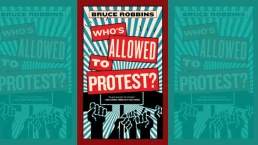The organization Free Speech for People is promoting legislation at the state, federal, and local levels that would prohibit foreign-influenced corporations from making political donations, potentially affecting every S&P 500 company.
By Donald Shaw, Sludge
Corporations were empowered by the Supreme Court in its 2010 Citizens United v. FEC decision to spend unlimited amounts of money, directly from their treasuries, on American politics because, the court reasoned, they are “associations of citizens” and thus must not be prevented from exercising their First Amendment right to spend money as they please. While for the most part corporations are not often buying political ads, the years following the decision have seen an explosion in spending by independent political groups, often flooding elections with more money than the candidates themselves spend—hitting a record high $3.2 billion in the 2020 election cycle, according to OpenSecrets.

It’s impossible to tell how much money corporations have spent on politics since 2010 because they rarely make direct political expenditures that have to be reported to the Federal Election Commission. But billions of dollars in election spending have been funneled through nonprofit organizations that are not required to disclose their donors and there is currently no way for that spending to be fully traced back to its source. In its Citizens United majority opinion, the Supreme Court defended the concept of disclosure and noted that “prompt disclosure of expenditures can provide shareholders and citizens with the information needed to hold corporations and elected officials accountable.” But efforts to improve disclosure by Democrats have repeatedly been filibustered by Senate Republicans. Justice Stevens warned in his Citizens United dissent that the decision “[appeared] to afford the same protection to multinational corporations controlled by foreigners as to individual Americans.”
While the issue of dark money has been intensely partisan in Congress, there has been somewhat more agreement on the threat of foreign interests exploiting campaign finance law loopholes to illegally influence elections in the U.S. For example, six House Republicans recently co-sponsored a Democratic bill that would prohibit foreign donors from contributing to ballot measure campaigns.
Now, a nonprofit called Free Speech for People is working to advance legislation at the local, state, and federal levels that would prohibit foreign-influenced corporations from spending money on politics in the U.S. Under the definition in their model legislation, companies where a single foreign investor owns or controls one percent or more of its total shares, equity, or other ownership interest would be considered foreign-influenced and would be prohibited from making political expenditures or donating to political committees or nonprofits that spend money in U.S. elections. The ban would also apply to companies where two or more foreign investors own, in aggregate, stakes worth five percent or more. According to Free Speech for People, the bills would prevent virtually all S&P 500 companies from spending from their treasuries on politics in the U.S., though those companies would still be allowed to sponsor employee-funded PACs that could make political donations.
Recent Posts
For Trump and Rubio, Colonizing Cuba Is Not About Freedom—It’s About Their Own Egos
February 15, 2026
Take Action Now For Trump, regime change in Cuba will cement his legacy. For Rubio, it will mark the culmination of his childhood dream. In their…
Trump’s Concentration Camp Build-Out Includes Nearly $40 Billion for Warehouse Conversions
February 14, 2026
Take Action Now “Germany’s concentration camps didn’t start as instruments of mass murder, and neither have ours,” wrote talk show host Thom…
Everyone Is Allowed To Protest
February 13, 2026
Take Action Now Tied up with the apparently very longstanding tradition of claiming that all opponents of atrocities are purely engaged in what has…
Abolition Is Still The Only Way Out Of This
February 13, 2026
Take Action Now Forget the useless so-called “reforms” to ICE and policing currently on offer. We need much more fundamental change.By Andrea J.…




